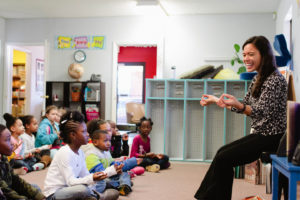Finding Joy amidst the Pain: A Glimpse into a Grief-Stricken Heart
On March 2, 2013, I was inducted into a club that every parent prays they will never join: the fraternal order of those who have lost a child. It happened so suddenly and unexpectedly. Even while…

On March 2, 2013, I was inducted into a club that every parent prays they will never join: the fraternal order of those who have lost a child. It happened so suddenly and unexpectedly. Even while standing there at my front door listening to the Highway Patrolman—who sounded something like Charlie Brown’s school teacher—my mind was circling with a thousand different thoughts and emotions at the same time. Life rarely warns you before it ends. Even when it does, most still feel unprepared. So how do you handle such an impact when it comes? How do you move beyond the pain to find joy in life with a gaping hole inside your heart?
Too often those who offer advice on how to handle such devastating losses have never experienced loss themselves. It’s kind of like those who write books on raising children without ever having had a child. I don’t propose that I’m an expert on this topic of loss. All I can do is share with you how we have handled it and some lessons we have picked up along the way. When you or someone you know experiences loss, consider the following.
First, don’t rush to correct the grieving person’s theology. There will be plenty of time for that later. Have you ever hit your finger with a hammer? It’s likely that if you did, you may be glad that someone was not present recording your words and actions at the moment. When we hurt, we say things—sometime really dumb things—not because it’s what we truly believe, but because we are hurting. Allow yourself, or your hurting friend, time to just vent. Don’t feel compelled to respond; just listen.
Second, don’t feel obligated to find the “right thing to say.” Frankly, there is no right thing to say. If words could repair the wounded heart from loss, we would all memorize that speech in school for when such occasions arise. The fact is, nothing you say will be the magic pill that brings healing to the broken heart. And the greater risk is that you will say something out of your best intentions that only further alienates your friend.
Let me give you an example. Some things I was told by well-intentioned friends were, “Josh was a lovely flower that God planted in his garden in Heaven.” Or, “Josh got his angel wings.” Now I knew very well that my friends were saying these things with the absolute best of intentions, so there was no way on Earth I was about to reply to them with what was circling in my head. But if I had replied, it would have sounded something like this: “Okay, first off, Josh was a human, not a plant. And if God wanted to plant him in his garden, he could have just made another one. I mean he is God, right?” Or “People are not angels. They don’t get wings just like they don’t become unicorns.”
In the Book of Job, we find an upright man who loses everything in a single day. Not just one child; he lost 10! His friends show up and if we could stop the book at the end of chapter 2, they would go down in history as the greatest friends a man ever had. They came and joined him without saying a word for seven days! Did you catch that? Seven days without a word! Which brings me to my third point.
Don’t avoid being around someone just because you don’t know what to say. Your presence says more than your words ever will. It’s scary being alone. C. S. Lewis remarked about the loss of his wife that “no one ever told me that grief felt so much like fear.” Perhaps it is human nature to not want to come around someone after they have suffered a loss for fear that you will say the wrong thing. Believe me, I welcomed even those who said silly things because I knew they loved me. Love forgives a multitude of sins. Everyone comes around at the funeral, but your best friends will be those who stay in your life in the weeks and months after without pushing you to “move on” or “get over it.”
Fourth, you don’t have to “move on” or “get over it.” As a friend of mine shared with me, speaking of the loss of his wife of nearly fifty years, it doesn’t get easier with time, it just gets more familiar. Don’t tell yourself or others that there is something wrong with them if they still grieve their loss years later. That is perfectly normal. Of course, there will be times when a good therapist would be helpful when one feels as if their grief is debilitating. I think it is appropriate to offer those options. You just need to be careful not to do that too prematurely and risk sounding as if you think the grieving friend is a broken project you are trying to fix. More often than not, with time, people will move through the stages of grief and regain their emotional balance. This is where a solid group of Christian friends and church are so very instrumental.
It was a few weeks after we had lost our son and our Sunday School class brought us a gift package of art supplies! We don’t draw or paint. What a strange gift. But you know something, we have used that kit throughout the years. In fact, we’ve added to it. You may think that sounds really strange and question the benefit of it. The statistics surrounding the divorce rate of parents that lose a child are staggering. In part, it is because the parents cease connecting with one another. This art kit causes my wife and me to find something new to do together. It is a means of expressing our emotions and creating something beautiful. It has proved very helpful.
Finally, don’t stop talking. If you’re hurting, don’t believe the voice in your head that says you had better stop talking or people will stop coming around. Your genuine friends will love you through this, no matter how long it takes. It’s interesting—some people I thought I was closest to drifted off when we experienced our loss. Conversely, some of my ‘acquaintances’ proved to be my closest friends in the aftermath. It’s strange how God uses tragedy to direct the course of your life. Things will never be as they were again. But with God’s help, and some good friends, there can be joy in the days ahead.



